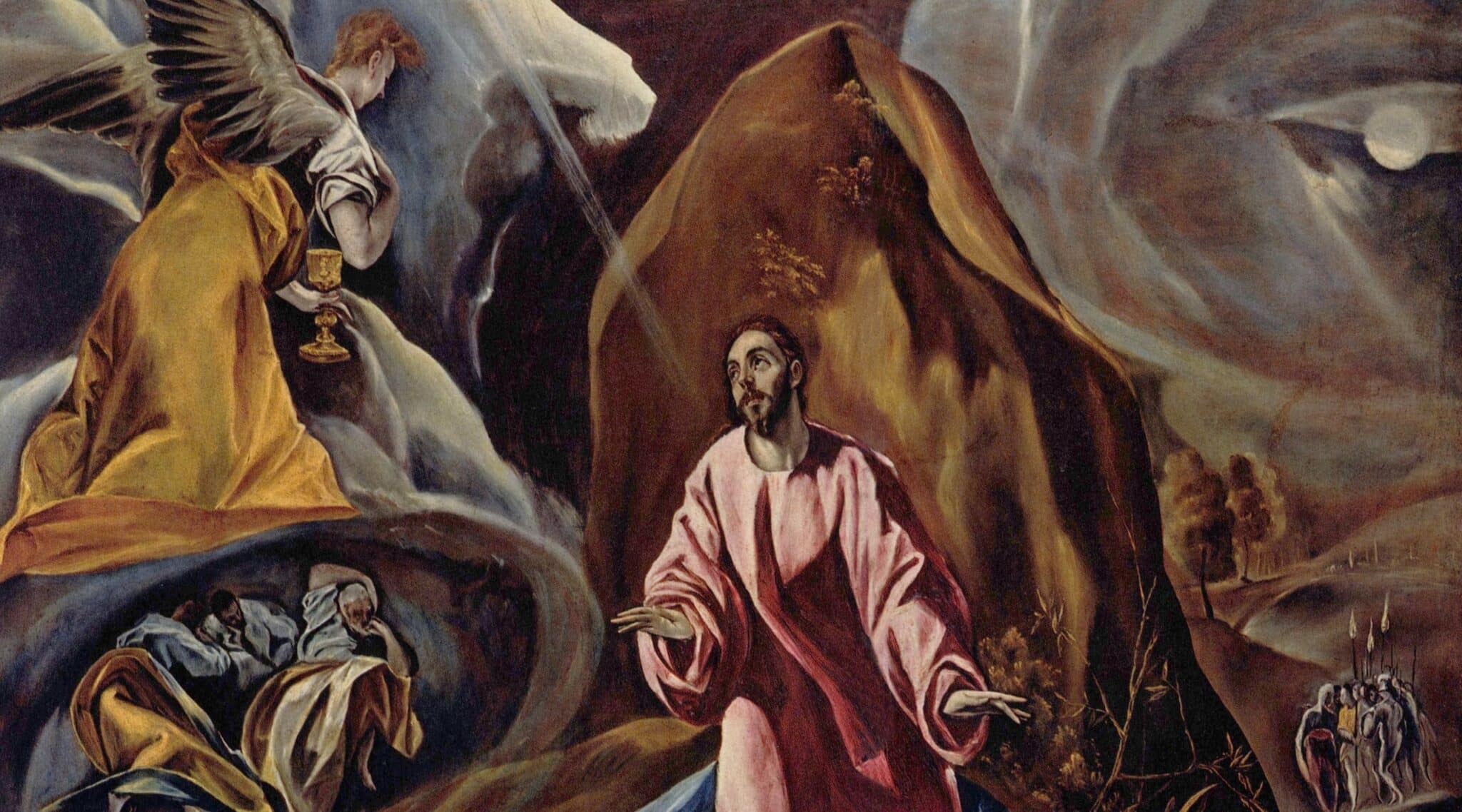Like Jesus in today’s Gospel, can we turn ‘our cross’ into love that is fruitful for others?
“When I am lifted up from the earth, I shall draw all men to myself.” (John 12:32) In today’s Gospel, Jesus expresses his desire to save everyone by turning suffering into glory. It begins when some Greeks want to see Jesus and they approach one of his apostles who has a Greek name, Philip, who The post Like Jesus in today’s Gospel, can we turn ‘our cross’ into love that is fruitful for others? appeared first on Catholic Herald.

“When I am lifted up from the earth, I shall draw all men to myself.” (John 12:32)
In today’s Gospel, Jesus expresses his desire to save everyone by turning suffering into glory.
It begins when some Greeks want to see Jesus and they approach one of his apostles who has a Greek name, Philip, who in turn confers with another Greek-named apostle, Andrew, also from Bethsaida, a town near the Greek territories to the north.
They are non-Jews but they are going to worship in Jerusalem for Passover; they are the first Greeks in the Gospel who see Jesus as a possible Messiah, rather than simply a miracle-worker.
They foreshadow the universal mission of Christ to all peoples, Jews and non-Jews alike; a mission that will spread in concentric circles through natural links of culture and friendship, just as these first Greeks make contact through two Greek-names apostles.
Do we make use of all the cultural resources we have to share our faith with all we meet?
This universal offer of salvation will be glorious, but not with a human kind of glory. Jesus immediately says that his hour has come, that hour which has been a main theme of the preceding chapters of John’s Gospel: now is the hour of his glory, but his glory is the cross.
Jesus uses the image of a wheat grain falling into the earth: if it dies, it bears fruit; if it does not die, it remains alone. All of us fall into the earth, all of us suffer. But not all of us “die” – that is, not all of us turn our suffering into love that is fruitful for others; otherwise we remain alone in our suffering.
As Jesus goes on to say: “Anyone who loves his life loses it; anyone who hates his life in this world will keep it for the eternal life.” The “death” to selfishness which he asks of us turns our isolation into love.
Jesus knows from experience how hard this spiritual “death” can be. He reveals his inner monologue: ‘”Now my soul is troubled. What shall I say: Father, save me from this hour?” This repugnance at his imminent suffering is natural, and returns with greater force a few days later in the Garden of Gethsemane, as the other evangelists recount.
Here Jesus quotes a psalm (psalm 6) to express his sorrow, just as he will quote another one (psalm 22) on the cross to do the same: “My God my God why have you abandoned me?” But both these psalms end in with God hearing the psalmist’s prayer; by quoting them Jesus shows that no matter how deep his sorrow was, his trust was always deeper.
Today’s second reading from the letter to the Hebrews dwells on this sorrowful trust of Jesus. Just as the psalmist’s prayers were answered, so Jesus’s reverence meant that “his prayer was heard”. But the answer to his prayer was not instant safety, but rather the cross followed by the resurrection. If my prayer is answered with pain, do I maintain my trust in the resurrection to come?
The central point of this second reading (if we look at the grammar of the text) is that Jesus “learnt to obey through suffering”; when I suffer, do I see it as a chance to learn in my head and in my heart that listening to God’s will is always the best thing for me?
In the Gospel, Jesus quickly renews his desire to embrace his suffering, and his Father speaks to encourage his disciples that his Son’s cross will glorify God’s name: “I have glorified [my name], and I will glorify it again.”
Jesus himself adds that his cross will be glorious and attractive, it will draw to him all peoples, Jews and Greeks alike: “When I am lifted up from the earth, I shall draw all men to myself.”
Let’s ask to see the glory of Jesus’s cross, which offers eternal life to each and every person, and to see clearly and confidently that our cross can become glorious and fruitful for ourselves and others.
Photo: ‘The Agony in the Garden of Gethsemane’, by El Greco.
![]()
The post Like Jesus in today’s Gospel, can we turn ‘our cross’ into love that is fruitful for others? appeared first on Catholic Herald.














